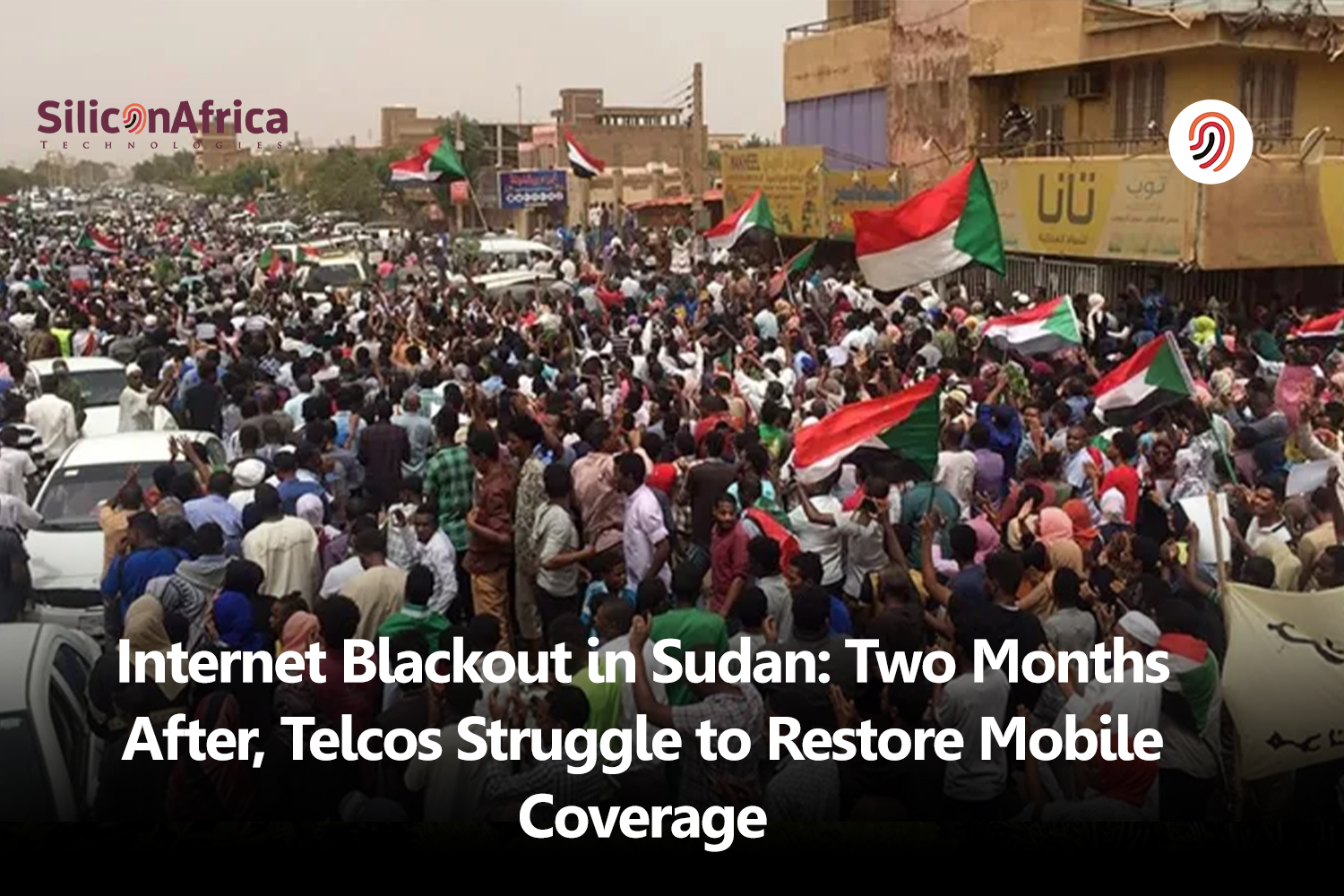Physical Address
60 Ekwema Cres, Layout 460281, Imo
Physical Address
60 Ekwema Cres, Layout 460281, Imo

Sudan is gradually recovering from a communications crisis, with mobile network operators still having difficulties bringing back full coverage even two months after a deadly internet shutdown.

The blackout, which caused almost 49 million people to live in a near-info vacuum, was an immediate outcome of the ongoing conflict between military and paramilitary forces.
The intensity of the conflicts has affected key infrastructure systems such as cell towers and power supply, leading to the complete breakdown of internet service and a significant drop in mobile network performance.
The lack of communication channels made worse an already existing humanitarian crisis, where people could not connect with family members, access necessary information or even do business.
There is a slight trend towards recovery but still, there are signs of a gradual comeback.
Local operators like Sudatel (the country’s second-largest carrier) and Zain have partially succeeded in restoring the services.
However, complete functional recovery remains an enigma.
Voice and data connectivity currently have inconsistencies, hence creating frustration for the Sudanese citizens who rely on mobile communication.
The magnitude of the destruction is great. Telecom providers are currently struggling with a large amount of damage that was done during the conflict.
It is difficult to fully regain control over their networks; this is both time-consuming and resource-intensive.
Making things even worse is the condition of the electrical grid.
Steady power supply is needed to keep cell towers running and ensure uninterrupted service.
Without fixing the grid, it is likely that mobile network stability will remain unstable at best.
Read More: War-torn Sudan Turns to Starlink to Beat Internet Disruptions
Starlink, an unlikely character, has joined the game in this crisis. Despite not having a legal permit to operate in Sudan, Elon Musk’s satellite internet service, Starlink, has been a lifeline for many Sudanese, including the paramilitary Rapid Support Forces (RSF).
Starlink’s feature of being able to provide internet access even when there is no terrestrial infrastructure proved helpful during the blackout.
This particular incident reveals how fragile Sudan’s communication infrastructure can be and how susceptible it is to conflict.
The internet shutdown was a brutal reminder of the importance of telecommunications in today’s world.
It helps with communication, it boosts economic activities and provides access to life saving information.
Sudanese government is now in a tough spot of not only getting back to full mobile coverage but also enhancing country’s communication infrastructure to avoid such incidents in the future.
This will entail substantial investment in network modernization, improved redundancy measures, and enhanced cooperation with telecom operators.
The way back will be tough and long.
But for the people of Sudan who wish to have a normal life and reliable communication, every cell tower that gets connected or a network signal that gets stabilized is a step towards a brighter future.
Was this information useful? Drop a nice comment below. You can also check out other useful contents by following us on X/Twitter @siliconafritech, Instagram @ Siliconafricatech, or Facebook @ Silicon Africa.